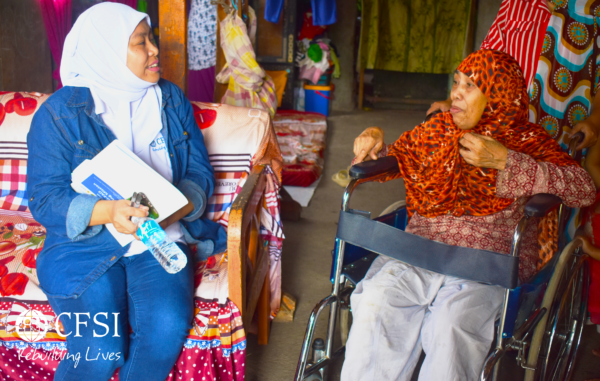This article was written by Hania M. Abdulmalic and Yasser Miondas, Field Assistants of CFSI under the Marawi Recovery Project (MRP).
Maratabat is a Meranaw term usually equated with pride. More often than not, people perceive it as a reason to engage in a rido or family feud. But the meaning of maratabat is more than that. It can be better understood in the story of Hedjara Pagayao Abbas.
Hedjara, 78, is from Brgy. Dado in Ditsaan-Ramain, Lanao del Sur. She survived a mild stroke and is enduring gout that severely affected her mobility. Back then, her husband used to diligently take care of her. But because of his demise around eight years ago, she had to move to her sister Faiza Abbas who patiently tended to her along with the rest of the family members.
The household has become one of the recipients of Marawi Recovery Project (MRP) which paved the way for Hedjara to receive an assistive device, particularly a wheelchair. She’s grateful for the wheelchair as it truly helped her and her caregivers in their everyday life.

Indeed, to be able to help one’s family unconditionally and not forsaking their welfare is the truest meaning of maratabat, and Meranaos is best known for possessing such. The story of the Hedjara and how she is nursed by her sister exemplifies what maratabat truly is. #
—
Hedjara is one of the *463 Persons with Disability (PWD) provided with assistive devices through CFSI’s Marawi Recovery Project. CFSI, supported by the Australian Government, implements the MRP since 2017 to promote protection, psychosocial, and livelihood recovery of at least 6,500 households affected by the Marawi crisis.
*as of November 2020

